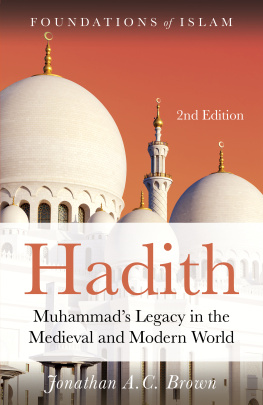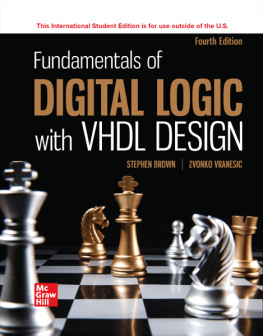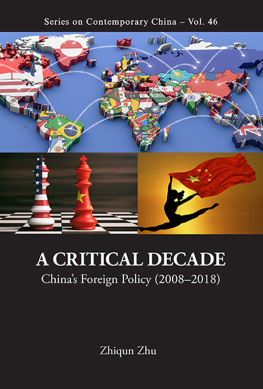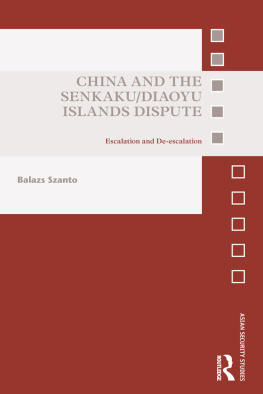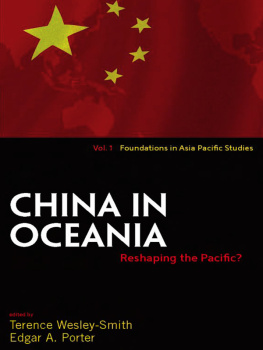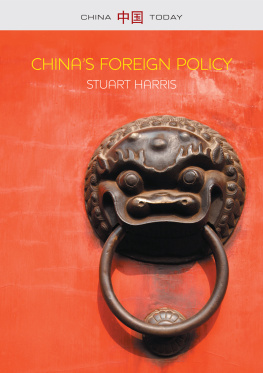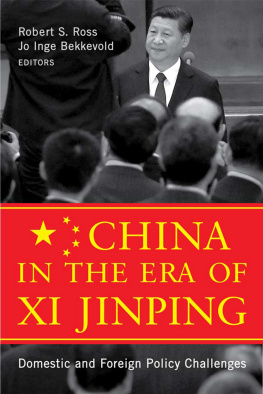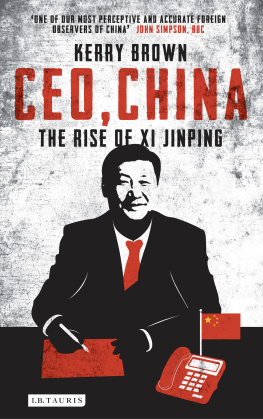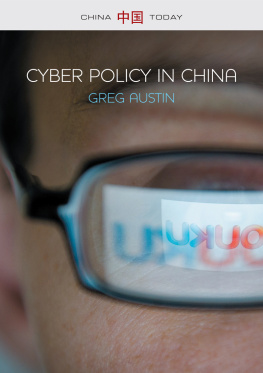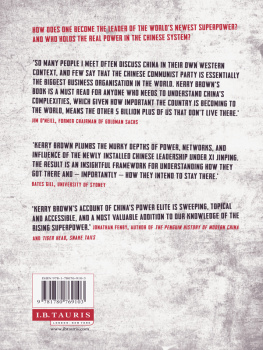Kerry Brown is Professor of Chinese Studies and Director of the Lau China Institute at Kings College London and Associate on the Asia Programme at Chatham House. Prior to this he was Professor of Chinese Politics and Director of the China Studies Centre at the University of Sydney. With 25 years experience of China, he has worked in education, business and government, including a term as First Secretary at the British Embassy in Beijing. He has written on China for the London Review of Books , the Diplomat and Foreign Policy as well as for many international and Chinese media outlets. He is the bestselling author of CEO, China (I.B.Tauris, 2016) and The New Emperors: Power and the Princelings in China (I.B.Tauris, 2014). His other books include Contemporary China (2012), Friends and Enemies: The Past, Present and Future of the Communist Party of China (2009) and Struggling Giant: China in the 21st Century (2007).
Kerry Brown is one of our most perceptive and accurate foreign observers of China
John Simpson, BBC
China now matters globally, and its inner workings need to be interpreted. This book, from one of the most experienced China-watchers in the field, throws a huge amount of light on Chinese decision-making, especially on foreign policy. Read it, for a picture of what China means to the world and the world means to China.
Sir Jeremy Greenstock,
former British ambassador to the UN
An admirably engaging and thoughtful account Refreshingly candid, the book exposes the fiction of a singular Chinese worldview, and forces us to contemplate both the myths and realities behind the narrative of Chinas global power. It is essential reading for all those concerned with China and international relations today.
Katherine Morton,
Professor of International Relations, Sheffield University
Published in 2017 by
I.B.Tauris & Co. Ltd
London New York
www.ibtauris.com
Copyright 2017 Kerry Brown
The right of Kerry Brown to be identified as the author of this work has been asserted by the author in accordance with the Copyright, Designs and Patents Act 1988.
All rights reserved. Except for brief quotations in a review, this book, or any part thereof, may not be reproduced, stored in or introduced into a retrieval system, or transmitted, in any form or by any means, electronic, mechanical, photocopying, recording or otherwise, without the prior written permission of the publisher.
References to websites were correct at the time of writing.
ISBN: 978 1 78453 809 5
eISBN: 978 1 78672 219 5
ePDF: 978 1 78673 219 4
A full CIP record for this book is available from the British Library
A full CIP record is available from the Library of Congress
Library of Congress Catalog Card Number: available
Text design, typesetting and eBook by Tetragon, London
To Jolita Pons and Rebecca Fabrizi,
for friendship and wise advice
Contents
Acknowledgements
I would like to express my gratitude to the publishers, and in particular Tomasz Hoskins, for commissioning this and the two previous books in this trilogy. Working with I.B.Tauris has been a happy collaboration. I am also thankful for the many people with whom I have discussed ideas drawn on in this work. I would also like to thank Sun Jiabao and Jolita Pons for reading through the first drafts and making many helpful and useful comments. Finally, I would like to thank Sarah Terry for her hard work on the copy-editing.
List of Abbreviations
AIIB Asian Infrastructure Investment Bank
APEC AsiaPacific Economic Cooperation
ASEAN Association of Southeast Asian Nations
BRI Belt Road Initiative
BRICS Brazil, Russia, India, China and South Africa
CASCF ChinaArab States Cooperation Forum
CCP Chinese Communist Party
CMC Central Military Commission
CNOOC China National Offshore Oil Corporation
DPRK Democratic Peoples Republic of Korea
EEC European Economic Community
IMF International Monetary Fund
MFA Ministry of Foreign Affairs
MSS Ministry of State Security
PLA Peoples Liberation Army
PRC Peoples Republic of China
RMB renminbi (the official currency of the PRC)
SCO Shanghai Cooperation Organization
UNCLOS UN Convention on the Law of the Sea
WTO World Trade Organization
Introduction
On 27 November 2015, the Ministry of Foreign Affairs (MFA) of the Peoples Republic of China (PRC) declared that it was establishing, for the first time ever, a naval installation beyond its shores, in the impoverished eastern African state of Djibouti. These facilities will help Chinese vessels to better carry out Chinese missions like escort and humanitarian operations, spokesperson Hong Lei declared. In practical terms, the project being envisaged was minuscule, and focused purely on Chinese naval assets. But this did not stop some commentators from reading much more into it. In the British Daily Telegraph , one writer stated that
Chinas decision earlier this month that it is to build its own naval base in Djibouti, the first time Beijing has sought to establish a permanent military presence beyond the countrys borders, has been greeted with deep concern at the [US] Pentagon.
For much of the Western media, this was a tangible sign of Beijings ambition, its desire to become a new kind of superpower, one with the ability to project far beyond its borders, a force to be reckoned with way beyond its traditional theatre of influence, Asia.
Even with a story as simple as this, however, there are no easy conclusions, and Chinas new planned facilities can be read as much as a sign of reluctance and weakness as one of assertiveness and strength. That the worlds second largest economy had no military assets abroad is the first anomaly. US capability stretches to almost every corner of the earth, with over 640 installations in more than 120 countries. China is the main trading partner for about 130 countries across the globe. And yet, it has one aircraft carrier (an old, retrofitted one bought from Ukraine in the early 2000s). The United States has more than 11, France two. China may well have showed off a lot of new-looking weaponry when it held its grand parade marking the 70th anniversary of the ending of the SinoJapanese War in September 2015. But, as analysts were quick to point out, almost all of this was untested. In nearly four decades, since the Reform period started in 1978, China has seen only one war, a brief skirmish with Vietnam in 1979 from which it came out badly. It is therefore a vast, important country with a huge military (some 2 million active servicepeople) and almost zero experience.
Djibouti was therefore remarkable because of the amount of interest and speculation such a minor facility drew. In the same tiny country in eastern Africa, the United States has a major site with 4,000 people (almost two and a half times the number of people that China planned to deploy). They have intelligence-gathering assets to hand, and a runway to accommodate aircraft. China simply aimed to have a port. It has a simple reason for this, too, linked not to neo-imperialist designs but to trade. For a country led by a political movement which had made economic development the core pillar of its legitimacy since the death of Mao Zedong in 1976, it was odd that China did not have, at the very least, some local capacity to look after their interests especially considering its growing reliance on oil imports from the restive Middle East region and the fact that oil transportation along stretches of the Indian Ocean is becoming increasingly vulnerable to US control or piracy. Nor was this situation new. For over a decade, it had been participating in United Nations anti-piracy operations. Within this context, Djibouti made eminent sense. It was strange, in fact, that China had not gone along this route earlier.



